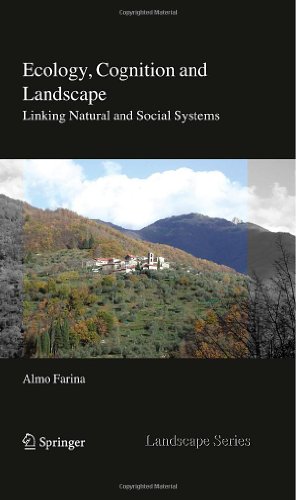

Most ebook files are in PDF format, so you can easily read them using various software such as Foxit Reader or directly on the Google Chrome browser.
Some ebook files are released by publishers in other formats such as .awz, .mobi, .epub, .fb2, etc. You may need to install specific software to read these formats on mobile/PC, such as Calibre.
Please read the tutorial at this link: https://ebookbell.com/faq
We offer FREE conversion to the popular formats you request; however, this may take some time. Therefore, right after payment, please email us, and we will try to provide the service as quickly as possible.
For some exceptional file formats or broken links (if any), please refrain from opening any disputes. Instead, email us first, and we will try to assist within a maximum of 6 hours.
EbookBell Team

4.3
68 reviewsWhile the importance of incorporating human factors into understanding ecological process is widely recognized, to date there have been few solutions offered as to how this can be done. In his new book, Ecology, Cognition and Landscape, Almo Farina makes an innovative move to do just that. And by reinterpreting both the ecological and social strands of landscape ecology, within a common framework based on cognition, he offers a way to make the necessary connections between the social and natural systems.
Following the success of his widely popular Principles and Methods in Landscape Ecology, Farina's new book builds on well-established theories to present his new ideas, explaining both in a way which is accessible to readers from both the natural and social sciences. By focusing on the relationships between human populations, human societies and environmental processes, the book provides the reader with a new approach for exploring and connecting the various aspects of ecological complexity.
Ecology, Cognition and Landscape will be an important and accessible reference for graduate students and researchers interested in all aspects of landscape studies, including ecologists, architects, agronomists, social scientists, environmental psychologists, and those exploring the economic, political and educational dimensions of both rural and urban landscapes.